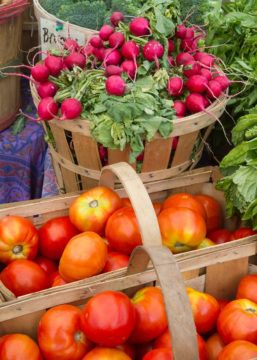Robert Paarlberg in The Harvard Gazette:

At a recent dinner party, the hostess served me a tasty salad with carrots, raisins, nuts, and baby greens. “It’s all organic,” she said, expecting my approval. To be polite, I smiled and said nothing, but a voice inside wanted to respond, “You paid too much.”
Nearly half of all Americans claim to prefer organic food, and the label has spread far beyond food. You can now buy organic lipstick, organic underwear, and even organic water. The 2019 Super Bowl featured ads for organic beer, and health-conscious smokers are able to purchase organic cigarettes. Most farmers, however, have little interest in switching to the more costly and less convenient production methods required for organic certification, so this constrains the supply, which makes organic food needlessly expensive. America’s farmers so far have certified less than 1 percent of their cropland for organic production, and fewer than 2 percent of commodities grown in 2017 were organic. Processed and packaged foods can now be organic as well, but fewer than 6 percent of total retail food purchases are organic products. Two decades after federal organic certification began in America, the brand remains a single-digit phenomenon.
More here.
